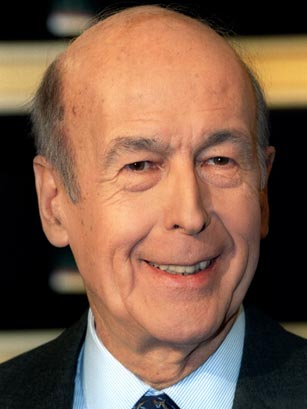
Former French President Valery Giscard d'Estaing after a television interview in March 1995
First Person
Until 1963, we were still living with the fear of a Soviet invasion, and the whole political vocabulary suggested we could wake up one morning occupied by hordes of Soviets. In reality, French public opinion had the idea that such a thing could no longer happen, so the nation's fears shifted to something different: the threat of nuclear war. We felt that in a Soviet-American war of mutual destruction, we Europeans would be the first victims. During this time, France adopted an independent stance. De Gaulle's idea was to get out from under America's tutelage. For the French public, however, the idea was that since the great danger is nuclear, we have to protect ourselves. Which explains the public support for the French deterrent during this period. This also explains the difference between French and German conduct. Helmut Schmidt often told me, "You, the leader of a nuclear power, can't realize the psychology of a country that knows it has no nuclear arms and is totally dependent on others for its protection."
This was also the period when the European Community came closest to realizing federalism. In 1979, to advance that prospect, we adopted a two-stage plan that would have led to a single currency by 1982 or 1983. We were very close to the goal. But I was defeated in 1981, and Schmidt left power in 1982, which put an end to the monetary part of the project. What is interesting is that we almost succeeded. It was a huge missed opportunity.
There was also a shift in France's international role during this time. De Gaulle's idea was that France must reaffirm its place in the world, and to do that, it had to show that it could annoy the others. My idea was different. First, we had to acknowledge that we were only a middle-size power, but we had a high degree of freedom. My idea was that we should be a country of initiative, contributing by our propositions to a more harmonious world.
So I took initiatives. Immediately after my election in 1974, I called for a North-South meeting between the industrialized countries and the oil-producing countries to try to find some common ground. Then, in the same spirit, I came up with the idea for the G-7 summits, to discuss problems that confronted the whole industrialized world. In each case, it was France launching an idea, proposing a formula that permitted us to find avant-garde solutions in a nonconfrontational way.
Formerly Finance Minister, Valery Giscard d'Estaing was President of France from 1974 to 1981